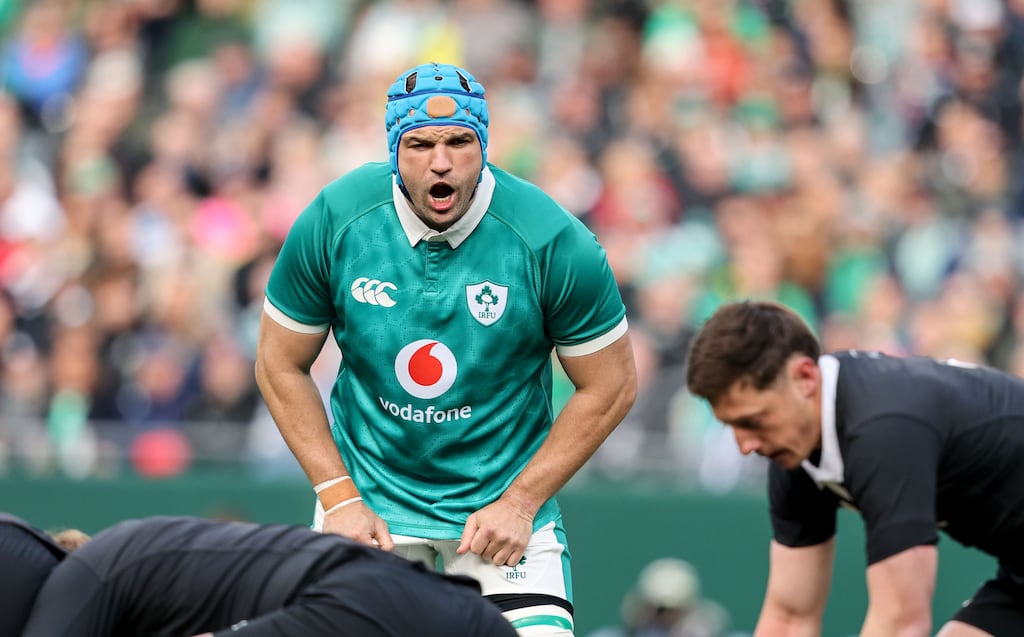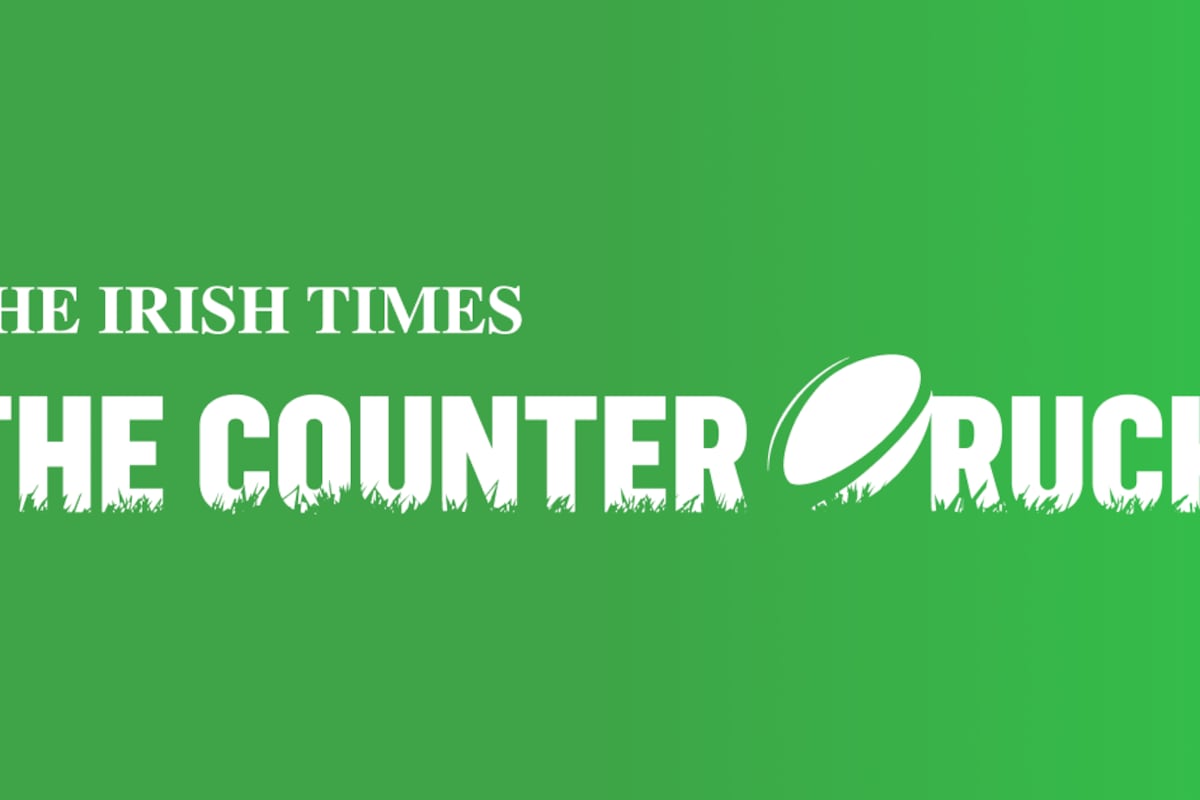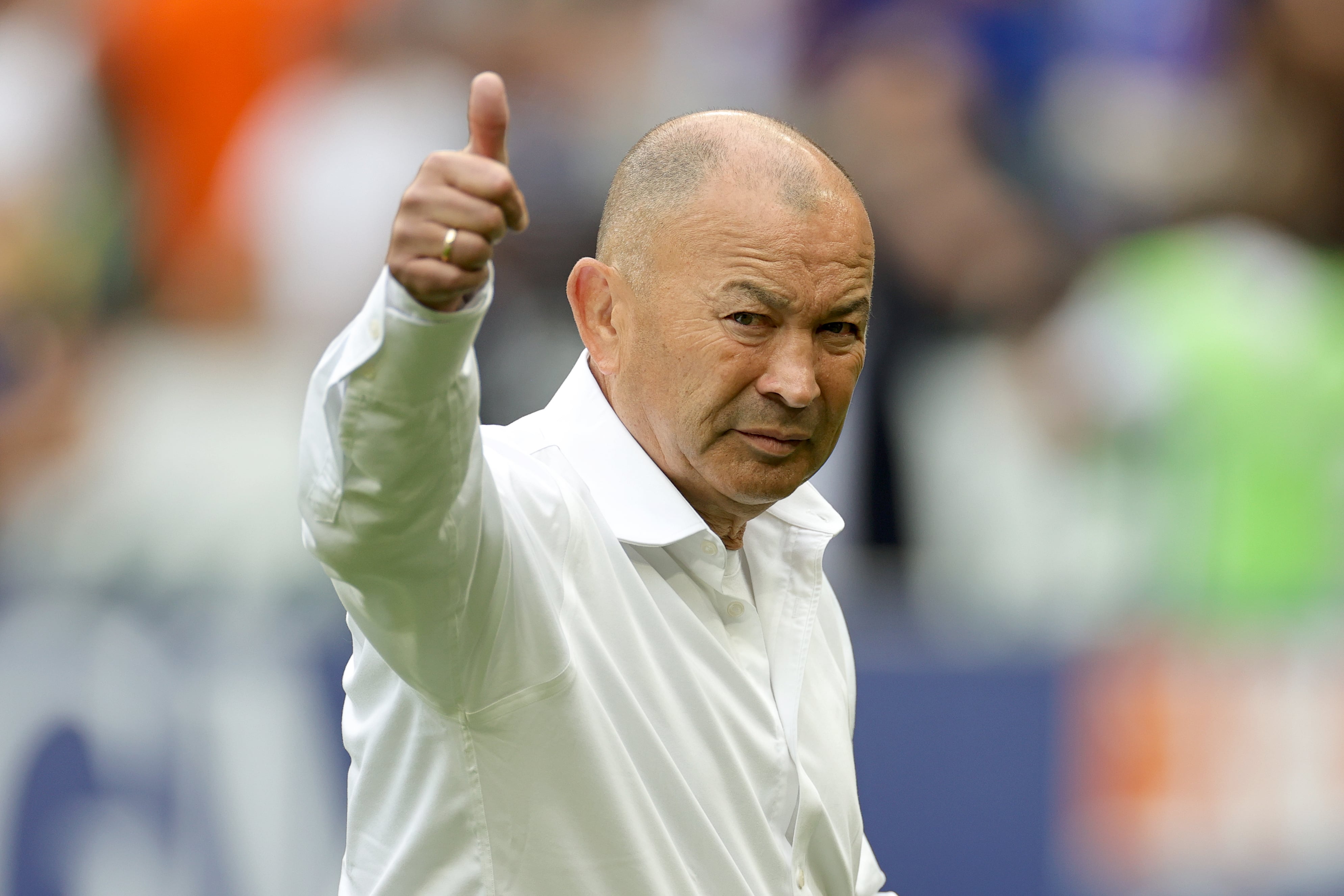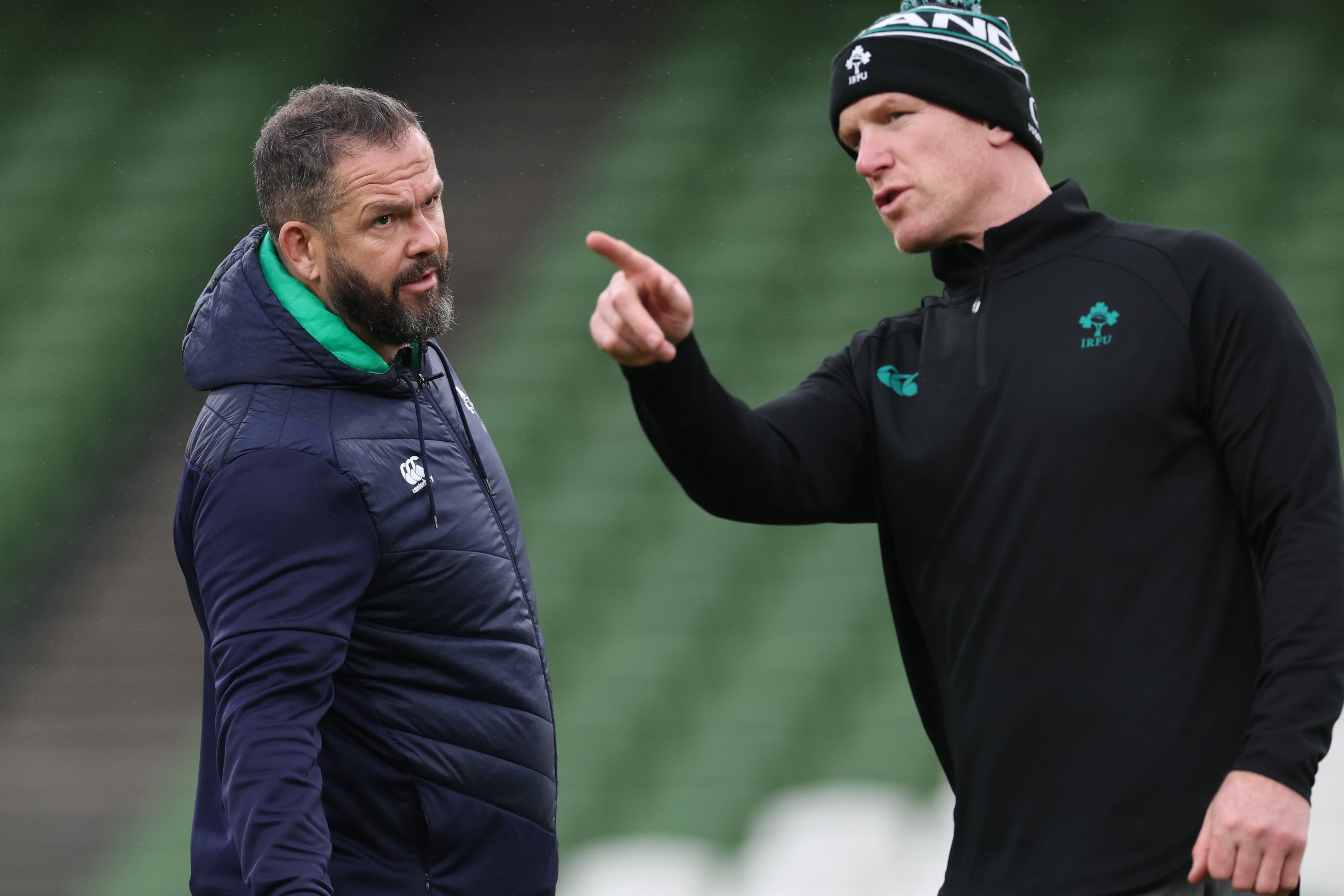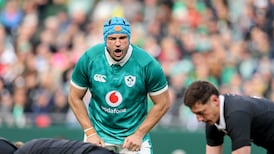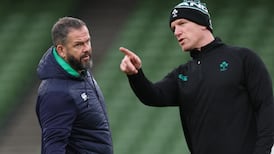I am not one for criticising match officials. At least common sense prevailed and Tadhg Beirne’s red card for an accidental collision with Beauden Barrett has been rescinded so Tadhg avoids what would have been a ridiculous suspension.
But at what cost?
Only two minutes into a global advertisement for rugby union, ahead of the 2031 World Cup in the USA, and our American hosts were scratching their heads.
I encountered plenty of curious Chicagoans during and after last Saturday’s game at Soldier Field.
READ MORE
Mainly, they wondered why the referee took so long to make a straight forward decision.
Rugby incident, play on.
“How did it go from yellow to red?” they asked.
I had no words.
“Whaaat, that’s foul play?”
Again, I was stumped.
You could see the locals switching off in real time.
The match officials’ chain of command failed the sport when they needed to be anonymous. In every game, the referee should have the final say. Use the technology – if it works – but never miss an opportunity to make the sensible call.
The error, made by three pairs of eyes – the ref, the TMO and the ‘foul play review official’ – took Ireland’s best player out of a massive occasion.
The officials’ poor interpretation of the rules became a bigger story than the game itself. That cannot happen again.
“It was a forward pass,” Dan Sheehan repeatedly told the referee to explain why Barrett and Beirne came together, but Ireland’s on-field captain was waved away.
“You think that’s a collision?” asked the many, many Americans we encountered.
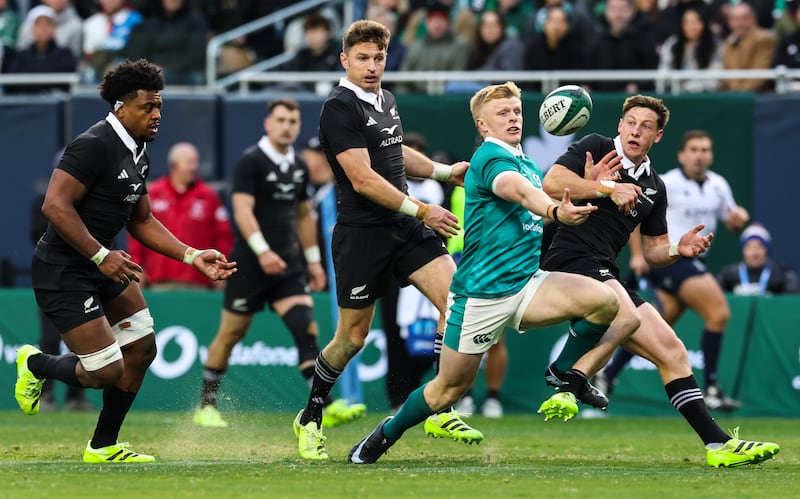
As a direct result, Ireland used up an enormous amount of energy when down to 14 players for 20 minutes.
I’m not saying New Zealand would have lost if Ireland’s lineout caller was on the pitch for 80 minutes but you can mark Tadhg down for two turnovers in every game he plays. That could have been the difference between a one- and two-score contest entering the final minutes.
At least World Rugby reviewed the matter and overturned the red card.
I bet the Ireland camp spent less time discussing the sending off than it took to read the first part of this column. Players and coaches cannot control unfair decisions.
As a guest of the IRFU, I’d a busy day up to kick-off in Chicago. I did a Q&A before finding a perch alongside Peter O’Mahony in the corporate section. Having been part of the national squad for most of our adult lives, we were locked in to the game. People were having a few drinks around us, so they came over for a chat, although Pete’s demeanour kept others away.
We were in the gods. But the panorama was cool. You can see the space. It had me thinking about Andy Farrell’s review of the quarter-final loss to the All Blacks in 2023: there was scope to attack in the wider channels.
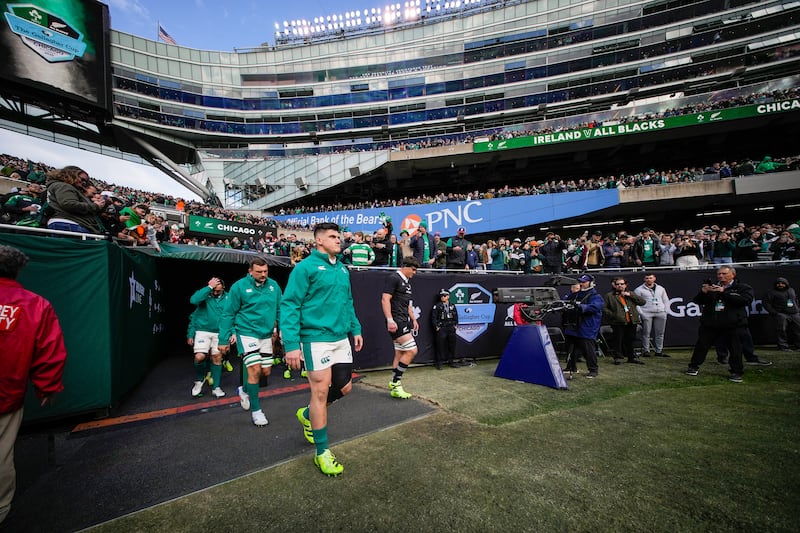
Reduced to 14 men, Ireland had an effective plan: go through the guts of the opposition and build a score. Rinse, repeat. Eventually, the numerical disadvantage took its toll.
I’d also say Simon Easterby’s defensive review barely referenced the sending off. He would have highlighted how the Irish forwards stood up to big, young All Black ball-carriers in the second-half. Eventually, they got behind us in the wider channels.
That was the game, they did to us what we wanted to do to them.
For 60 minutes, Ireland were building towards a famous victory. The All Blacks deserve plenty of credit, but the lineout and handling errors swung momentum. Paul O’Connell will spend every waking hour this week on the set piece. And a few more when he’s asleep. Same goes for Sheehan, Rónan Kelleher, the lifters and the jumpers. They’ll want to get the lineout flowing before the Springboks arrive in Dublin.
The halfback unit will focus on kick accuracy and making an impression off the bench. Every player will want to feature against Japan so they can build into a ‘fourth Lions Test’ against the Wallabies.
I used to love playing for Ireland in Dublin at this time of year. The city is alive when you step out of the Shelbourne Hotel after the post-match dinner to head somewhere for a pint. So, naturally, I hate when November internationals are branded “friendlies.” I know it is done to rise rugby people, but this year is like a mini Tri-Nations. In terms of pressure, there is no difference to the Six Nations.
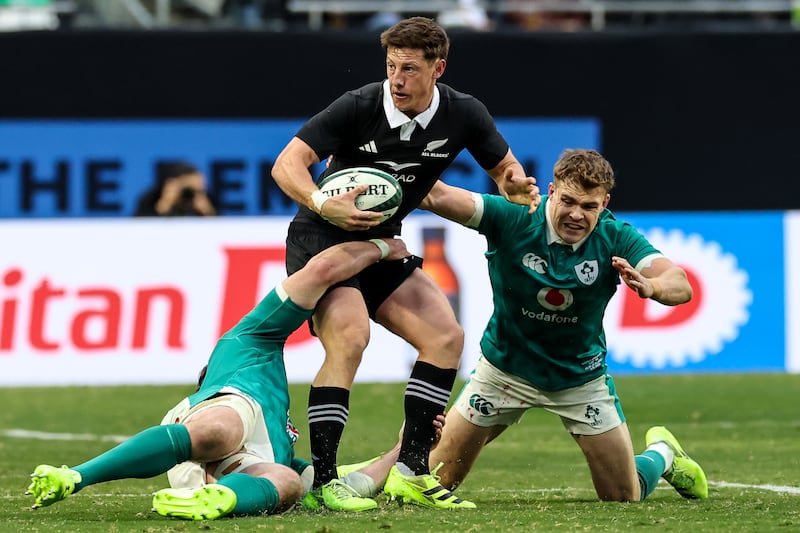
Australia and South Africa are to come, but nobody in the Ireland camp is thinking past Japan. Not after the night in Shizuoka six years ago when it seemed like a country of 124 million people had set an ambush. The atmosphere inside the stadium was electric and the Japanese refused to wilt.
The reasons for what happened in 2019 have been teased out. I still think that night came down to execution. Same goes for Chicago.
Defeat to New Zealand in the opening international of the season will be taken in stride by an experienced group. Maybe a few Munster forwards can play themselves into contention come the Six Nations but, unlike South Africa, New Zealand, France and England, we do not produce 21-year-old versions of Jack Conan and Tadhg Furlong every other season. The whole point of the Irish system is to develop world class players like Jack and Tadhg, and mind them so we get the most out of them.
That is why we’ve been able to compete against the best in the world for over 20 years. Any team will miss X-factor athletes like Mack Hansen but we are not supposed to have the numbers to challenge bigger rugby nations, and yet we do. Because the system works.
